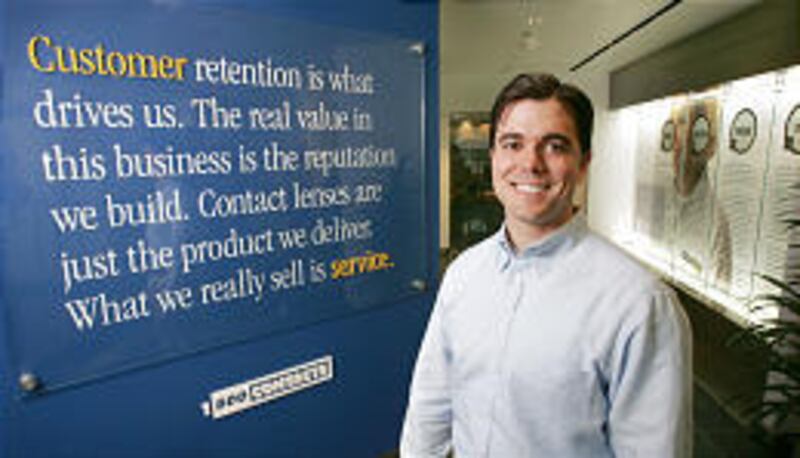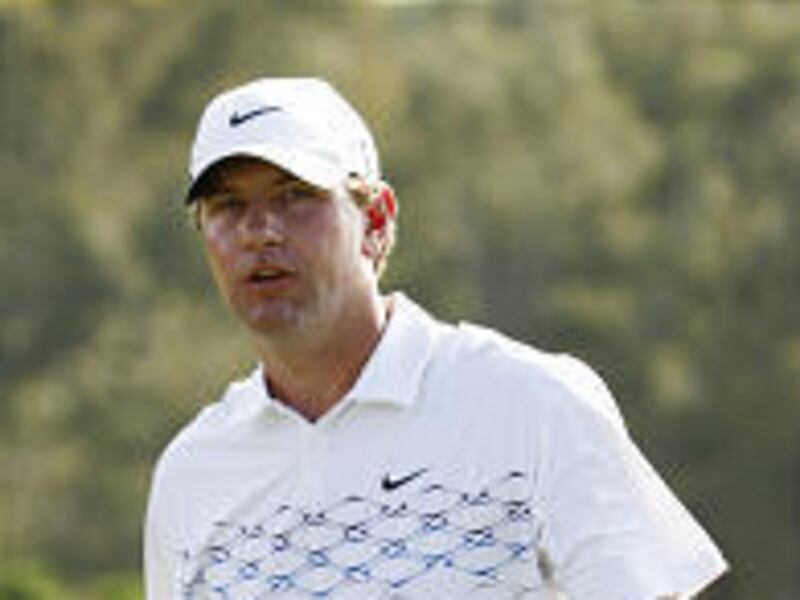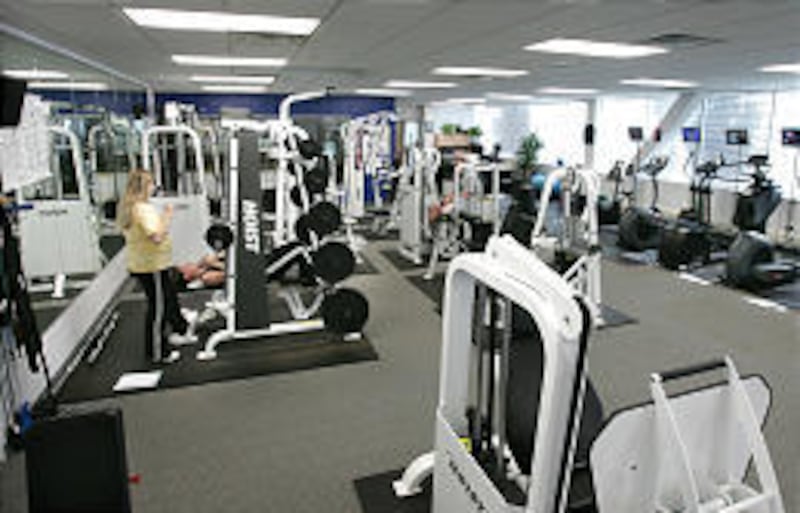DRAPER — As an undergraduate at Brigham Young University in 1992, Jonathan Coon had a problem.
"I started wearing contact lenses in college," he said. "I had no money and no car, and the doctor's office was far away and expensive."
It seemed silly to Coon that a product that was already made and sold in a sealed package took a week and two trips to the optometrist's office to get, but he could get a pair of glasses in one trip if he was willing to wait an hour.
He saw an ad for a company that sold contacts directly to consumers and decided to solve his problem by running a similar business out of his dorm room. But BYU rules said he couldn't publish his room's telephone number.
"I only carried four products," Coon said. "I was in the dorms. It was very pathetic, very small. . . . I had to operate the business with no telephone."
But Coon's idea was solid, as was his business sense. And those early days at BYU taught him the importance of the right telephone number.
In 1995 he got it, securing the rights to 1-800 CONTACTS from a real estate agent in North Carolina. The rest is Utah business history.
The company, now based in Draper, has grown from about $500,000 in sales in 1995 to more than $211 million last year, Coon said. And as it celebrates the 10th anniversary of nabbing that all-important telephone number, its 35-year-old founder and chief executive officer is looking forward to an even brighter future.
We, not I
That's not to say it's always been easy for the company. Even getting the key 1-800 number was a challenge, Coon said.
"It took forever to find (the real estate agent), because he didn't answer the phone," Coon said.
Once the number's owner was tracked down, it took two months and a 28-page agreement to get the number transferred.
"That was the smartest thing we ever did," Coon said. "It makes everything else work."
Coon rarely, if ever, uses the word "I" when describing 1-800 CONTACTS' achievements. It's always "we," whether he is referring to his original partner in the business, optician John Nichols, or to the nearly 1,000 employees on the company's current "team."
" 'I don't actually do anything," Coon said. " 'We' do things as an organization.
"I don't like the word 'boss.' I don't like the word 'employees.' Everybody's a volunteer. There's no job that's so good that people can't quit and go work somewhere else."
Coon does like to talk about business lessons he's learned from past jobs, like serving as a "line cook" at a restaurant in Idaho, or from his own experiences as a consumer.
For example, Coon tells about trying to buy a coat during the holiday season. The items he wanted were all locked together, he said, and he could not get anyone from the store to help him. Eventually, he left in frustration and took his business elsewhere.
That helps explain why 1-800 CONTACTS ships most of its orders with no signature required. It would be pointless to require people to sign for their contact lenses, he said, because the company's primary goal is to reduce hassle.
"We trust the customer to do the right thing," Coon said. "People do the right thing 99 percent of the time, and the rest of the time is the cost of doing business."
A home-grown culture
Coon said that and other parts of the 1-800 CONTACTS corporate culture started to develop when he and Nichols were running their growing company out of a home in Orem. They set up eight cubicles in the living room for a call center. The basement was used for distribution. The kitchen was the company cafeteria.
"It was like a luxury office space," Coon said. "We were good neighbors. We were definitely where you wanted to go on Halloween."
While in this "home office," Coon said, it was easy for the people who were answering the phones to feel they were "empowered" to help customers. He realized that, if 1-800 CONTACTS were to succeed, that feeling had to last as the company grew.
"If we take care of our team, our team will take care of customers," he said.
At 1-800 CONTACTS, taking care of the team means offering a full gym, flexible schedules and a subsidized cafe offering inexpensive meals for employees.
"For a company our size to have a gymnasium and that quality of cafe . . . is unusual," said Brian Bethers, an experienced chief financial officer for several companies who came to 1-800 CONTACTS about two years ago to serve as its president.
"Jonathan (Coon) is the vision and the passion behind 1-800 CONTACTS. (The company's culture) creates a tremendous sense of loyalty, but also fun. It's a fun place to work."
Coon said working in that Orem house was fun, too. But booming sales necessitated a move, so the company headed north in December 1996 to office space in Draper. Growth continued, and in 1998, when Coon was just 27 years old, he led the company through its initial public offering.
"Historically, any meeting I go to, I'm the youngest person there, which doesn't help, because there's a credibility gap there," Coon said. "On our (IPO) road show, I actually had two people ask if I had a driver's license."
Conflict — and resolution
But the offering was a success, and the company's growth continued until 2001, when it went into what Coon calls "litigation and legislation mode."
Bethers, a Utah native who also went to BYU, said the company faced conflict regarding prescriptions for contact lenses.
"Under federal law, a contact lens is a medical device and only available by prescription," Bethers said. "We're not involved in that."
Prescriptions are brand-specific, and Coon said companies were hesitant to sell their lenses to 1-800 CONTACTS.
"We were, at one point, paying $21 per box for Acuvue (brand lenses) and selling them for $20," he said.
Also, some optometrists were not happy with the company's growth, which cut into their lens sales.
After considerable legal wrangling and legislative efforts, 1-800 CONTACTS helped push the Fairness to Contact Lens Consumers Act through the U.S. Congress. That law, which went into effect in 2004, says eye care providers must give consumers their contact lens prescriptions even if they are not asked, and that they must respond to direct contact lens sellers within eight hours to verify a person's prescription.
By the time it was passed, the law also was supported by the American Optometric Associa- tion.
"I think that the law has been just fine," said David Cockrell, an optometrist in Stillwater, Okla., and a member of the AOA's board of trustees. "I think the optometrists' position is that they want to take care of their patients' eye health and do the best job they can to take care of their eyes."
The law has helped optometrists do that, he said. And although he and his colleagues still compete with 1-800 CONTACTS and similar businesses, Cockrell said he does not hold any ill will toward the company.
"For my entire career — and I've practiced over 20 years — there have always been alternate sources for contact lenses," Cockrell said. "I think most practices have adapted to it, and I think it works out fine for the patients. . . . I think really as long as both parties have as their main goal to make sure that every patient is taken care of appropriately, then I think everybody will do fine."
A clear step forward
Bethers said 1-800 CONTACTS has about 98 percent of all its orders in stock, and, with the help of the new law, it can ship most orders within 24 hours.
Coon said the company is just starting to feel the effects of the law and moving back into a fast-growth mode.
In the past two years, 1-800 CONTACTS has acquired a Singapore-based developer and manufacturer of contact lenses and renamed it ClearLab International. And now the company is developing relationships with optometrists under which it will handle the calls when people contact their doctors for replacement lenses.
"Right now, every (1-800 CONTACTS) customer has to go to a competitor for an eye exam," Coon said. "So we see an opportunity to partner with stores. . . . It should be a perfect marriage of two skill sets."
As for Coon himself, he said he does not have a timetable for his future with the company or with other business plans that might come along.
"I've always had other business ideas that are of interest to me," he said. "But we're not finished here."
And, at the least, he has solved the problem that started him on this path in the first place.
"I get a really good deal on contact lenses."
E-mail: gkratz@desnews.com





